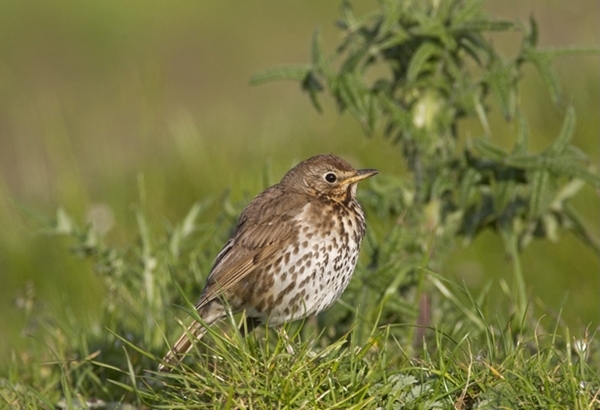
NATURE lovers across the country are being urged to take part in the Big Farmland Bird Count (BFBC), which is back for the sixth successive year.
The nationwide citizen science project calls on farmers, land managers and gamekeepers to spend 30 minutes spotting species on their patch of land between the 8th and 17th February 2019.
Crucially, the results will aim to distinguish which farmland birds are thriving due to good conservation efforts while identifying the ones in need of most help.
Peter Thompson, who works as a biodiversity advisor at BFBC organisers Game & Wildlife Conservation Trust (GWCT), said: “Many, many farmers do lots on their farms to encourage wildlife, but when I give talks to the public, they always seem most surprised that this is the case!
“The big farmland bird count gives individual farmers the chance to spend just half an hour counting birds on their farm, so that the GWCT can shout from the roof-tops about your results!”
Last-year saw a record-breaking 1,000 people take part in the count, recording 121 species across 950,000 acres.
A total of 25 red-listed species were recorded, with five appearing in the 25 most commonly seen species list. These include fieldfares, starlings, house sparrows, song thrushes and yellowhammers. The most plentiful of these were fieldfares and starlings, which were seen on nearly 40% of the farms taking part.
But Peter believes hundreds more people should vow their support to the initiative.
He added: “Last year, just over a 1,000 people took part in the count, which on the face of it looks fantastic. However, there are around 212,000 farm holdings and around 3000 full time gamekeepers in the UK (and a similar number who do the job part time). Therefore, less than one in every 200 (0.4%) of potential counters took part last year. Perhaps, this is why the public seem unaware of your efforts!”
Sponsoring the count this year is the NFU, whose president Minette Batters will be bird-spotting on the first day of the count on her Wiltshire farm.
“The NFU is extremely pleased to be sponsoring the 2019 GWCT Big Farmland Bird Count. This event highlights perfectly how farmers balance excellent conservation work on farms across the country alongside producing the nation’s food,” said Minette.
“Over the past four decades, farmers have carried out a huge amount of work to encourage wildlife and are responsible for protecting, maintaining and enhancing 70% of the nation's iconic countryside.
“I would encourage as many farmers as possible to participate during the event in February as this is crucial in the survival and protection of many farmland bird species.”
CLA vice-president Mark Tufnell commented: “Rural land managers, from farmers to gamekeepers, are doing a huge amount of good work to help farmland birds, but what’s really important is that we have the best records we can of what they are delivering.
“Anyone who works on and cares for the land is vital in helping to ensure the future survival of many of the country’s most cherished farmland bird species. So, the more people we have participating the better. I urge CLA members to pick up their binoculars and take part.”
At the end of the count, the results will be analysed by the Trust. All participants will receive a report on the national results once they have been collated.
Aside from the NFU being the main sponsor, the count is also being supported by FWAG, LEAF, Kings, Perdix and CLA.
How to take part in three simple steps
1) Download your count sheet at our newly-launched BFBC website www.bfbc.org.uk
2) Count your birds! On a day between 8th and 17th February, spend about 30 minutes recording the species and number of birds seen on one particular area of the farm.
3) Once you've completed your count, simply submit your results at www.bfbc.org.uk
Notes to editors
The Game & Wildlife Conservation Trust – providing research-led conservation for a thriving countryside. The GWCT is an independent wildlife conservation charity which has carried out scientific research into Britain’s game and wildlife since the 1930s. We advise farmers and landowners on improving wildlife habitats. We employ more than 60 post-doctoral scientists and other research staff with expertise in areas such as birds, insects, mammals, farming, fish and statistics. We undertake our own research as well as projects funded by contract and grant-aid from government and private bodies.
For information, contact:
Eleanor Williams
Telephone: 07592 025476
Email: press@gwct.org.uk